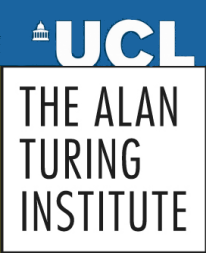Alan Turing Institute Data Science Exploiter Summit:
Big Data in the Physical Sciences
Forefront research in physics, chemistry, astronomy, geosciences, and related areas increasingly produces, processes, and analyses very large datasets, with successful outcomes depending critically on the ability to extract information rapidly and with high precision and accuracy. These disciplines are therefore prime exploiters of modern data science concepts and algorithms but they also push the boundaries of data science applications. The Alan Turing Institute (ATI) will play a key role as a hub that facilitates the knowledge exchange between data science, applications in the physical sciences, and practitioners outside academia.
This ATI summit will bring together researchers, practitioners, industry, and public sector funders, from the ATI joint venture partners as well as the UK-wide community, in order to discuss the requirements, challenges, and opportunities of data science applications in the physical sciences.
The scope of the meeting encompasses:
- to present the mission of the ATI, show routes for engagement with the ATI, and inform the future priorities of ATI work;
- to identify common data science challenges in different research areas and commercial applications, and foster collaboration;
- to identify pathways to impact of research via data science applications (e.g. citizen science, spin-out of data science applications), incl. open access for big data;
- to identify key areas of data science that ensure UK leadership in research and that help leverage UK investments.
Topics will include:
- large data collection and fast data selection/indexing;
- hardware and software challenges and solutions, e.g. data storage/preservation and dissemination/sharing, distributed computing, exploiting GPUs;
- data mining, and inference on big data and big models;
- compute- and data-intensive simulations, and error analysis and control;
- the impact of big data on experimental design and research strategies.
